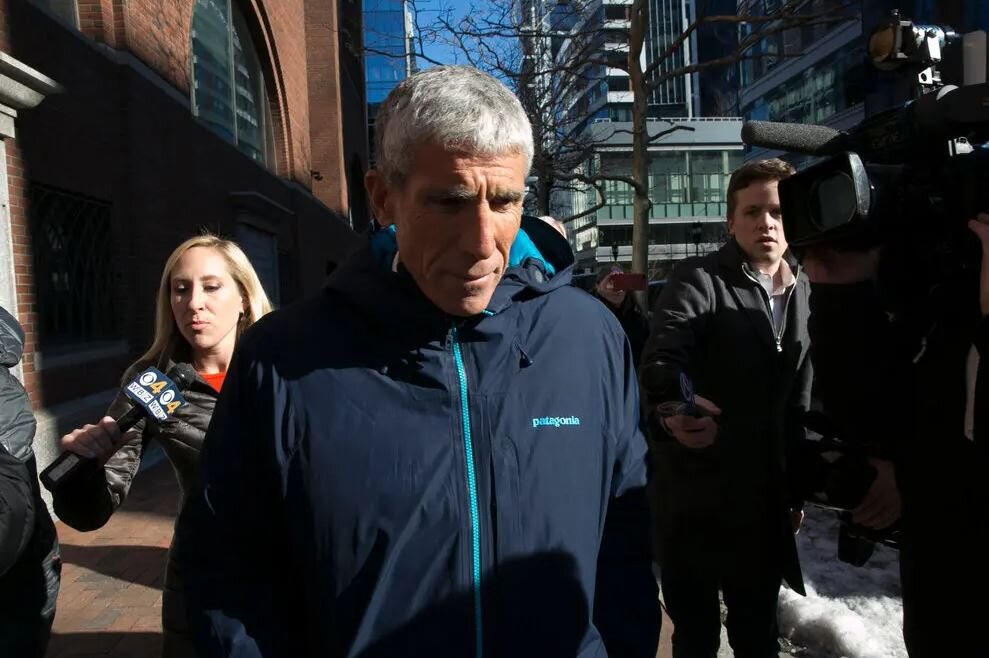Federal prosecutors labelled William Rick Singer, the college admissions consultant at the centre of Operation Varsity Blues, as the architect and mastermind of a criminal conspiracy that “massively corrupted the integrity of the college admissions process.” In court documents filed this week, federal prosecutors recommended that William Rick Singer, the college admissions consultant who was at the centre of Operation Varsity Blues, serve a prison sentence of six years.
However, Mr. Singer’s legal representatives requested a sentence of no more than six months in jail and submitted a “statement of responsibility and relapse prevention plan” that was signed by Mr. Singer himself. Mr. Singer expressed regret for his actions in the paper, which was also submitted this week to the United States District Court in Boston. According to what he wrote, “I have woken up every day with humiliation, guilt, and regret.”
Mr. Singer, who is 62 years old, is scheduled to be sentenced the following week in connection with the college admissions scandal that involved more than fifty parents, exam proctors, and coaches in a scheme that involved payoffs to secure college acceptance for students with fabricated high school resumes, including enhanced athletic records and SAT scores.
Actresses Felicity Huffman and Lori Loughlin were two of the people who pleaded guilty in the college admissions scandal. Huffman arranged through Mr. Singer to have her daughter’s SAT score boosted, and Loughlin’s daughters posed in faked photos of them rowing in an effort to gain admission to college for themselves.
Federal prosecutors allege that Mr. Singer, a former college admissions adviser who catered to wealthy parents, took in more than $25 million from clients and paid $7 million in bribes to coaches of college sports including rowing, sailing, soccer, tennis, and volleyball. The allegations come from the federal government.
There were coaches involved from universities such as Yale, Stanford, University of Southern California, Wake Forest, and Georgetown who were involved in the operation.
Prosecutors noted that Mr. Singer had found demand in “wealthy and overprivileged clients” who were attempting to rig a system that “already favours those with wealth and privilege.” They referred to his crime as “breathtaking in its audacity,” and they noted that Mr. Singer had found demand in “wealthy and overprivileged clients.”
After authorities started looking into Mr. Singer’s plot in 2018, he eventually agreed to cooperate with the government and entered into a guilty plea in 2019.
Candice L. Fields, the attorney for Mr. Singer, said in papers that were submitted to the court that her client, a former coach, had established a legal college admissions consulting firm in the state of California. According to what she said, however, as his career grew, he started exploiting loopholes in the system.
“As his clients became more affluent, he found that some could afford to buy college admissions through the ‘back door,’ by making a very large donation to a school in order to promote the student’s admission,” Ms. Fields wrote. “He found that some could buy college admissions through the ‘back door’ by paying bribes to college officials.” According to what she stated, those gifts that were once legal eventually crossed over into illegal area.
Mr. Singer is now forced to lead a meagre existence since he is unemployed and lives in a trailer park in St. Petersburg, Florida that is reserved for older citizens. At the moment, he is participating in community service.
In documents filed with the court, Mr. Singer asserts that unnamed childhood trauma was a crucial factor in the development of his conduct. The court has been given information concerning the childhood traumatic experience, but it is under seal.
He wrote, “Through my very recent work with a psychologist, I have gained some disturbing but important insight into the suppressed childhood trauma that I suffered, and how that trauma played a significant role in determining my behaviour later in life.” This insight was gained as a result of his very recent therapy session with a psychologist.
The government stated that even though Mr. Singer’s cooperation was “hugely significant” in the prosecution of the case, he had nonetheless obstructed the investigation by erasing text messages and informing at least six families that his phone was bugged. The government recommended that Mr. Singer be sentenced to six years in prison.
A document that was submitted on Wednesday included the recommendation that was filed by Rachael S. Rollins, who is the United States Attorney for the District of Massachusetts. Additionally, it requires Mr. Singer to hand up more than $10.6 million to the Internal Revenue Service and to give up assets valued at around $8.7 million.
The tax bill is associated with the manner in which Mr. Singer encouraged his customers to channel bribes and other payments via two nonprofit organisations that he had founded, with the intention of disguising the payments as charitable donations.
According to what the government has said, the groups were apparently established with the intention of “providing educational and self-enrichment activities to underprivileged youngsters.”
The Federal Bureau of Investigation (FBI) said in a second document that it had been unable to identify purported offshore assets of Mr. Singer’s in banks located in Madrid, Panama, the Middle East, and Nassau, the Bahamas. These locations were given as examples.
Michael Kendall, the attorney for one of the defendants in the Varsity Blues case, John Wilson, filed a letter to the court in February stating that he had found that Mr. Singer had assets in offshore accounts, mentioning various institutions in his letter. Kendall was representing Wilson. The assertion has been refuted by Mr. Singer.

